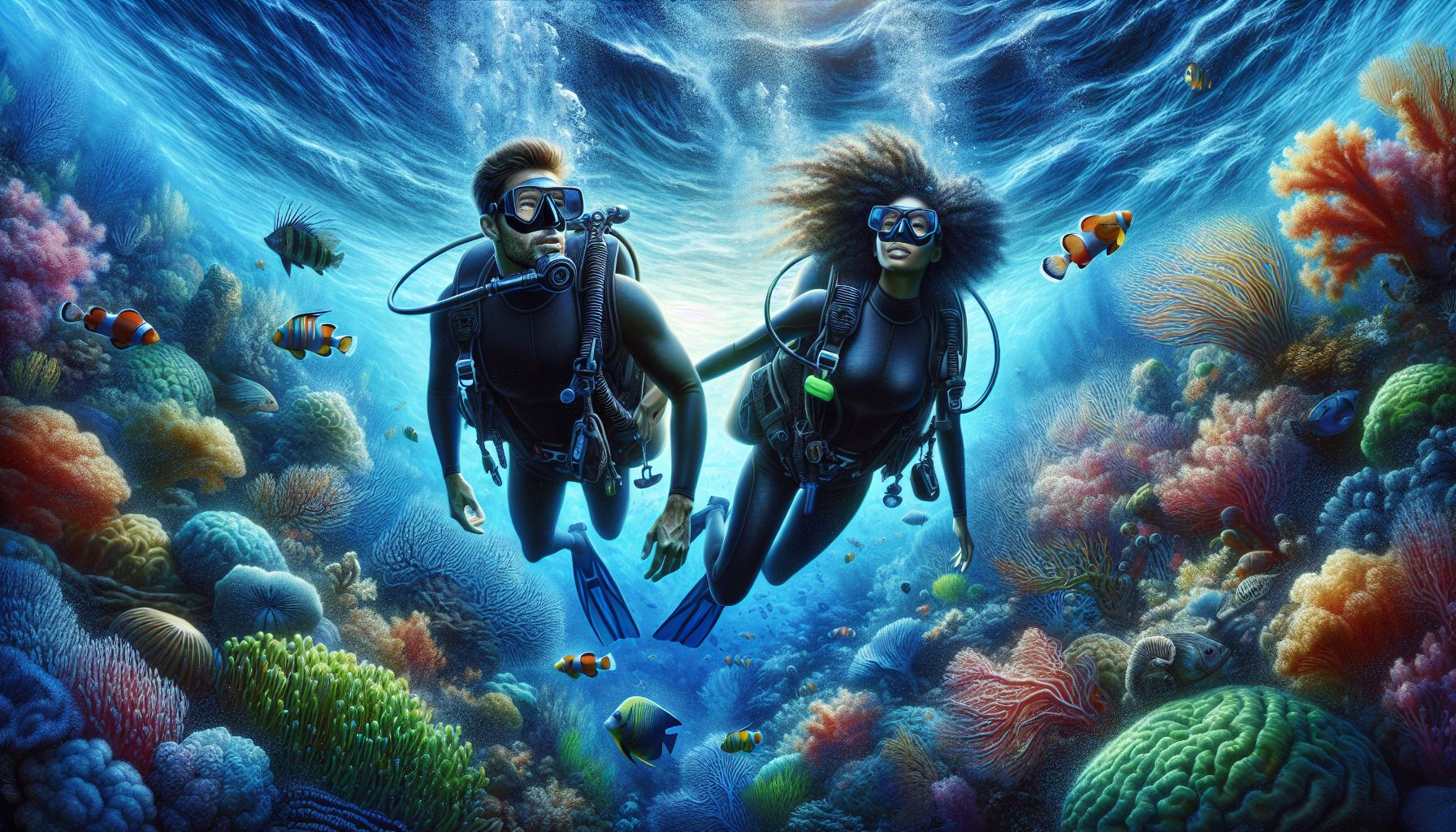Scuba diving is an exhilarating and transformative experience that allows humans to explore the mysterious depths of the ocean. Not only does scuba diving provide a unique perspective on the marine world, but it also offers a range of physical and mental benefits. In this comprehensive guide, we will delve into what scuba diving entails, the different types of diving, the essential skills you need, the equipment involved, and important safety considerations. We will also discuss the environmental impact and how divers can be responsible underwater explorers.
What is Scuba Diving?
Scuba diving is a mode of underwater diving where divers use self-contained underwater breathing apparatus (SCUBA) to breathe underwater. It’s distinct from snorkeling, which involves breathing through a tube at the surface, or free diving, which relies on holding one’s breath. Instead, scuba divers carry their own source of breathing gas, typically compressed air or enriched air nitrox, allowing them greater freedom and extended bottom time beneath the ocean’s surface.
Types of Scuba Diving
Recreational Diving
The most common form, recreational diving, is all about exploring and enjoying the underwater realm within the safety limits of no-decompression diving, usually up to a depth of 40 meters (130 feet).
Technical Diving
Tech diving pushes beyond the typical recreational limits, involving deeper and more challenging environments, often requiring specialized training, equipment, and gas mixtures.
Commercial Diving
Here, diving is part of the job description. Commercial divers might be involved in underwater construction, repair, salvage operations, or scientific research.
Learning to Dive: Essential Skills and Certification
To scuba dive, one must first receive training and earn a certification from a recognized dive agency such as PADI (Professional Association of Diving Instructors), SSI (Scuba Schools International), or NAUI (National Association of Underwater Instructors). The open water diver certification is the entry-level qualification, which involves mastering several skills:
- Understanding Basic Principles: Learning the effects of pressure and the use of dive tables or computers.
- Equipment Familiarity: Setting up and maintaining gear, understanding its functions, and demonstrating its use.
- Breathing Techniques: Regulating breathing and air consumption.
- Buoyancy Control: Mastering neutral buoyancy to hover and glide through the water.
- Emergency Procedures: Practicing safe ascent protocols, managing air supply issues, and buddy assistance.
Scuba Diving Equipment
A typical scuba setup includes several key components:
- Dive Mask: Allows for clear vision underwater.
- Snorkel: Used at the surface to conserve air in the tank.
- Fins: Provide efficient movement through the water.
- Scuba Tank: Stores the compressed breathing gas.
- Regulator: Delivers air from the tank at a breathable pressure.
- Buoyancy Control Device (BCD): Allows for fine-tuning buoyancy.
- Dive Computer: Monitors depth, bottom time, and assists with safe ascent rates.
- Exposure Protection: Wet or dry suits to maintain body temperature.
- Weight System: Helps offset the buoyancy of the diving suit and the diver’s natural buoyancy.
Safety Considerations: The Diver’s Checklist
- Physical Fitness: A medical questionnaire or a doctor’s consultation may be required.
- Buddy System: Dive with a partner for mutual safety.
- Pre-Dive Safety Check: Ensure all equipment is functioning correctly.
- Environmental Awareness: Monitor currents, tides, and weather conditions.
- Conservative Diving: Follow no-decompression limits and safety stops.
- Never Hold Your Breath: Continuous breathing prevents lung overexpansion injuries.
- Plan Your Dive, Dive Your Plan: Stick to the agreed depth, time, and communication methods.
Marine Conservation and Responsible Diving
Scuba diving can have an impact on the marine environment. To be a responsible diver, follow these practices:
- Do Not Disturb Wildlife: Avoid touching or feeding marine life to prevent ecological disruptions.
- Buoyancy Mastery: Good buoyancy control prevents damage to ocean flora and sea beds.
- Secure Your Gear: Dangling equipment can inadvertently harm fragile ecosystems.
- Take Only Pictures: Leave shells, corals, and sand on the ocean floor.
- Eco-Friendly Products: Use reef-safe sunscreens and avoid plastic waste.
The Magic Under the Sea
Imagine descending into clear blue waters, surrounded by colorful corals and vibrant marine life. From swimming alongside gentle giant manta rays to exploring mysterious wrecks, scuba diving unlocks a new dimension of adventure and fascination.
Wrecks and Reefs
Wrecks provide artificial reefs for marine life and intriguing sites for divers. Coral reefs, the “rainforests of the sea,” are biodiversity hotspots teeming with life.
Night Diving
Experiencing the ocean at night is vastly different as nocturnal creatures emerge, and the underwater landscape becomes a bioluminescent wonderland.
Cave and Ice Diving
For the truly adventurous, these specialized forms of diving offer a glance into some of the most surreal underwater environments on the planet.
Further Exploration and Training
Advanced Open Water Diver
Expand your skills and depth limits.
Rescue Diver
Learn to prevent and manage problems in the water.
Specialty Dives
Pursue interests like deep diving, underwater photography, or wreck diving.
Dive Master and Instructor
Turn your passion into a profession.
Conclusion
Scuba diving opens up a world of underwater discovery. It requires proper training, responsible behavior, and a genuine respect for the marine environment. As divers, we have the privilege to witness the ocean’s splendors, and with that privilege comes the duty to protect this fragile and beautiful world.
For more information about scuba diving and how you can get certified, check out these resources:
- Professional Association of Diving Instructors (PADI): https://www.padi.com
- Scuba Schools International (SSI): https://www.divessi.com
- National Association of Underwater Instructors (NAUI): https://www.naui.org
Happy diving, and remember to always dive safe!
